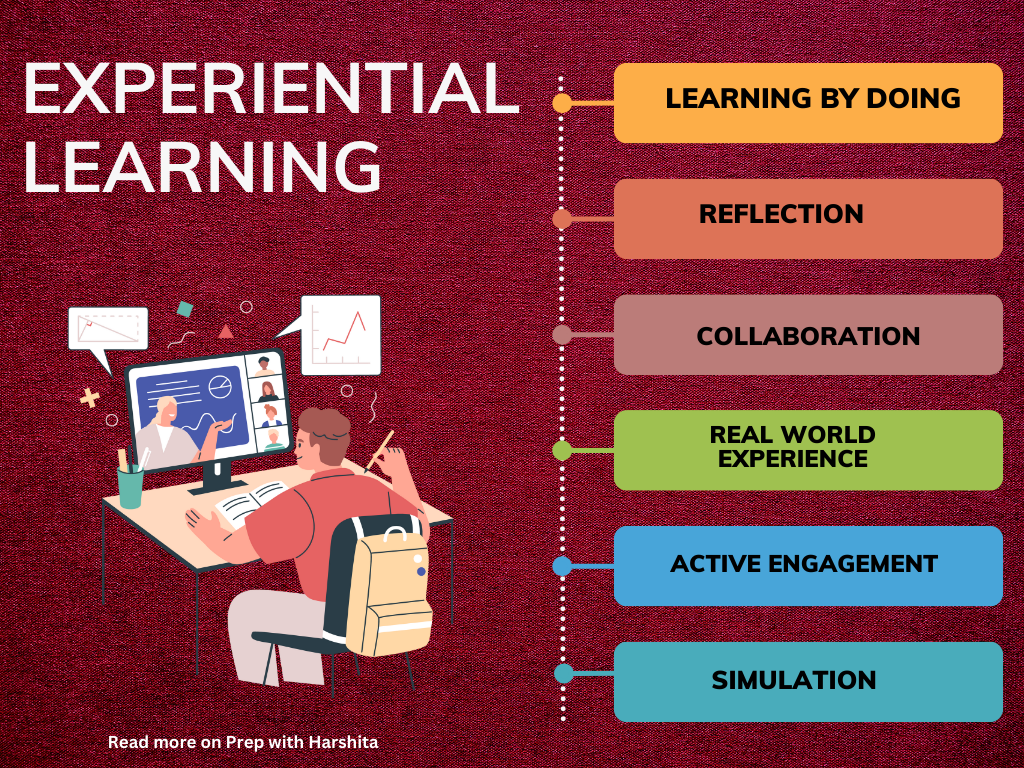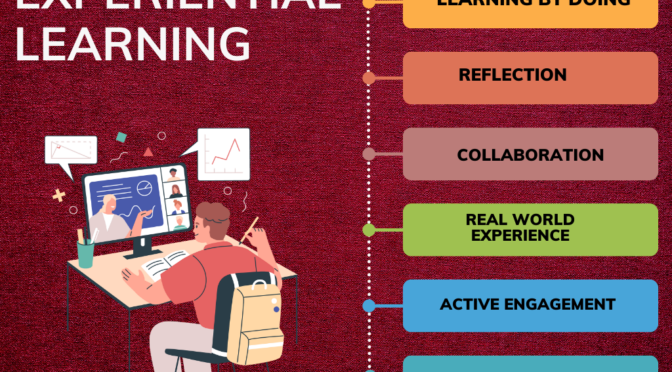Collaboration: Many experiential learning activities involve collaboration with peers, encouraging teamwork and communication skills.
Active engagement: Students are encouraged to ask questions, explore, and problem-solve, fostering a deeper understanding of the material.
Examples of experiential education methods include internships, cooperative education programs, service-learning projects, outdoor education experiences, simulations, role-playing exercises, and hands-on experiments in science labs.
Experiential education can be used in various educational settings, from primary and secondary schools to colleges and universities. It can also be used in corporate training programs and professional development initiatives. It is often praised for its ability to engage students, promote critical thinking and problem-solving skills, and prepare individuals for success in the real world.
Also Read: Features of Experiential Learning



GLOBAL BUSINESS ELITE YOUR WHOLESALE SUPPLIER OF AGRICULTURAL AND INDUSTRIAL COMMODITIES
We are a global company providing food, ingredients, agricultural solutions and industrial products that are vital for living. We connect farmers with markets so they can prosper. We connect customers with ingredients so they can make meals people love. And we connect families with daily essentials from eggs to edible oils, salt to skincare, feed to alternative fuel. https://globalbusinessltd.co.uk/
Global business elite
copper cathode
aluminium wire scrap
scrap processor
scrap cpus
waste paper scrap
fridge compressor scrap
cable scrap
scrap copper wire
waste paper for sale
ceramic cpu scrap
icumsa 100
cpu scrap
wholesale sugar suppliers uk
scrap processor
scrap central processing units
occ paper scrap
occ waste paper scrap
nut prosper globe
ocopper cathode specifications
sachet water filling and sealing machine
insulated copper wire scrap
waste paper supplier
recycled copper wire
copper scrap wire
occ waste paper suppliers in uk
processor gold recovery
waste paper supplier
ccopper wire scrap millberry